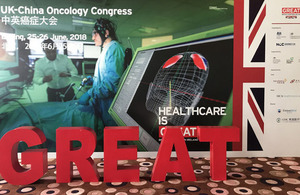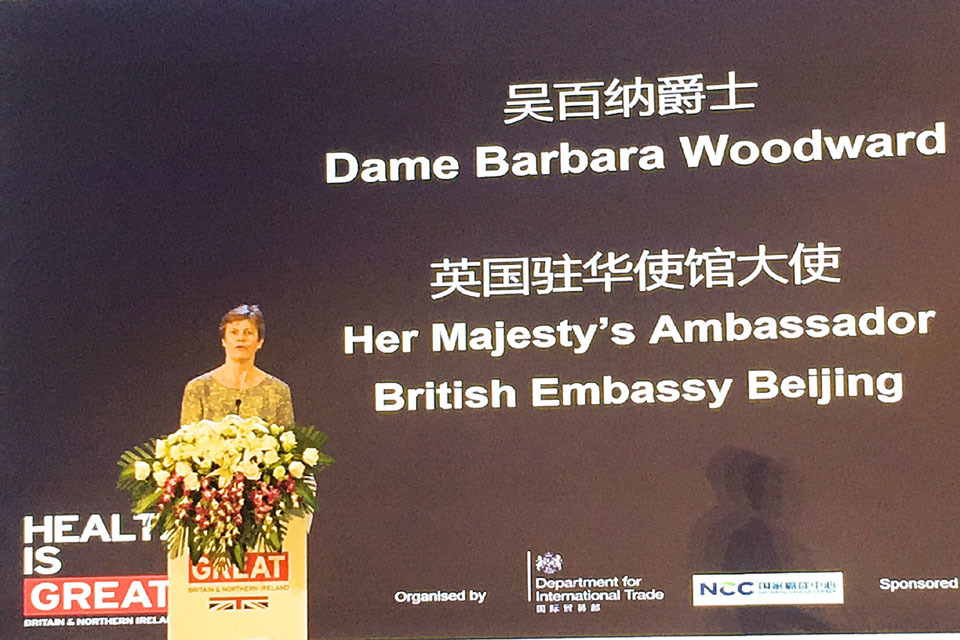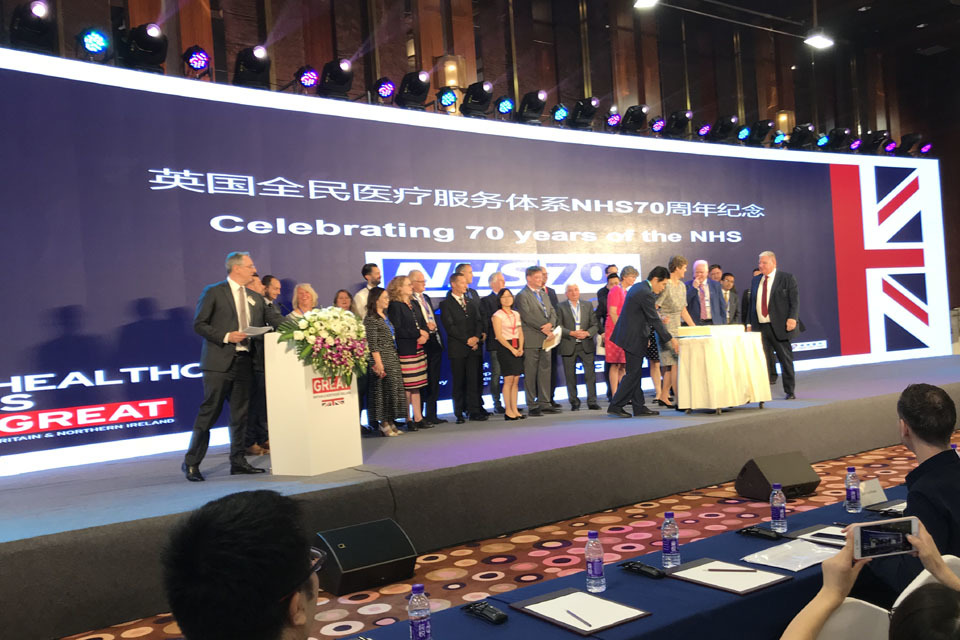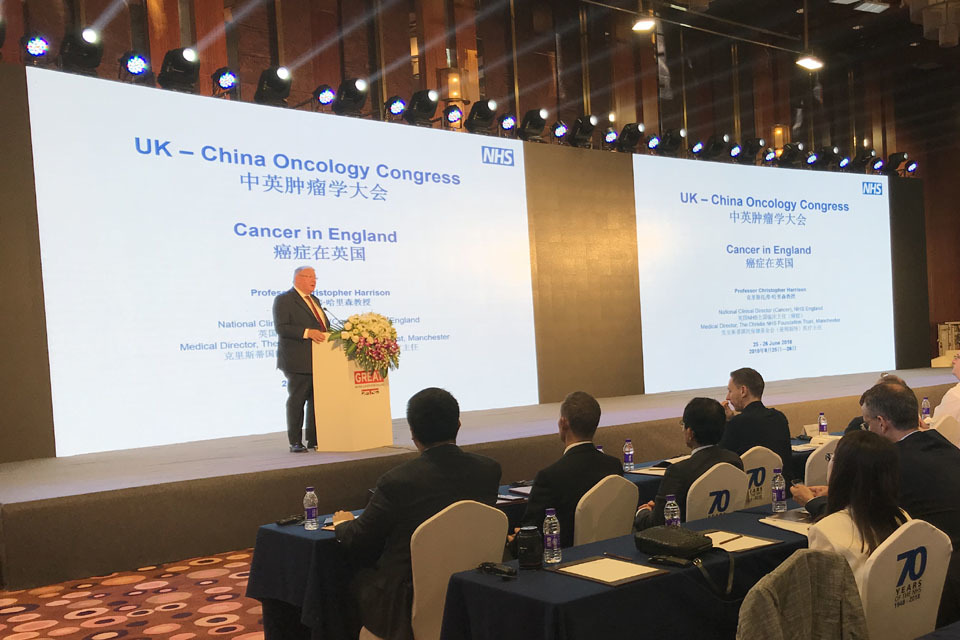The UK and China’s leading experts unite at the first joint Oncology Congress
The Congress will bring together over 1,000 representatives from both countries, to work together to help tackle the global cancer challenge.

Picture of poster for first joint Oncology Congress with 'GREAT' branding
Taking place over 2 days in the heart of China’s capital city, the first UK-China Oncology Congress will bring together over 1,000 representatives from both countries, to work together to help tackle the global cancer challenge.
Cancer is now the second leading cause of death globally, with China accounting for approximately 20% of the world’s new cancer cases and 27% of the world’s cancer deaths, and with the number of people living with cancer rising by almost half a million in the last 5 years in the UK.
The first UK-China Oncology Congress
As part of the new Golden Era of relations, the UK and China have set out to work together on a wide range of global issues, with healthcare representing a vitally important new area of collaboration.
The China National Cancer Centre together with the Department for International Trade and the British Embassy Beijing, will bring together leading academic and industrial experts from the UK and China to tackle the global cancer challenge.
Representatives will attend from a wide range of institutions including:
- universities
- hospitals
- distributors
- commercial organisations
- research institutes.
Attendees include:
- AstraZeneca, Digital China Health,
- 4 UK National Health Service (NHS) Trusts
- 5 leading UK Universities
UK companies Exhibiting at the congress

Picture of UK companies exhibiting at the congress
Exhibiting at the congress will be 30 UK companies working in the field of oncology to showcase the UK’s global expertise, and to seek new collaborations with Chinese organisations.
State of the art and innovative products and services will be on display from top UK healthcare enterprises, covering:
- the patient journey of prevention
- diagnosis
- primary and specialist care
- rehabilitation and end of life care
- the science of the patient pathway for new therapies
UK at the forefront of cancer research
As home to many of the world’s most famous cancer hospitals and specialists, the UK is at the forefront of cancer research and the application of the very latest technologies to improve outcomes. Cancer survival in the UK has doubled in the last 40 years.
The UK’s NHS strategy to improve cancer prevention, diagnosis, treatment and care until the end of life is committed to delivering the best possible outcomes for patients and their families.

Picture of Her Majesty’s Ambassador to China, Dame Barbara Woodward speaking at the opening ceremony of the congress.
Her Majesty’s Ambassador to China, Dame Barbara Woodward speaking at the opening ceremony of the congress said:
Cancer is a significant and growing global health problem. Alongside the challenge of the disease itself the additional substantial emotional and economic effects mean that cancer will remain a priority for both the UK and China.
By bringing together our experts and academics at this important Congress, we can more effectively take on the challenge and deliver for the benefit of UK, Chinese and global citizens.
UK’s National Health Service’s 70th birthday

Picture of congress platform with participants celebrating the UK’s National Health Service’s 70th birthday
The congress will coincide with the UK’s National Health Service’s 70th birthday (5 July 2018). As one of the UK’s most cherished institutions, the NHS has developed important links over years with China, including:
- the Royal Free NHS Trust work with Nanchang University no. 1 affiliated hospital to support Infection control training
- an ongoing programme for Chinese doctors to undertake observerships at the Royal Marsden NHS Trust Hospital in the UK

Picture of Professor Chris Harrison delivering a speech at the Congress.
Prof. Chris Harrison, National Clinical Director of Cancer, NHS England said:
We can build on the NHS’s strong track record in cancer care pathways, and China’s speed in innovation and development to foster strong collaborations in oncology stemming from this congress.
He Jie, Director of China National Cancer Centre said:
There are a lot of potentials in oncology cooperation between China and the UK, not only in covering the patient journey of prevention, diagnosis, but also in scientific research.
Scientists in this field should strengthen communication and cooperation on cancer prevention and diagnosis, to tackle this increasing burden.